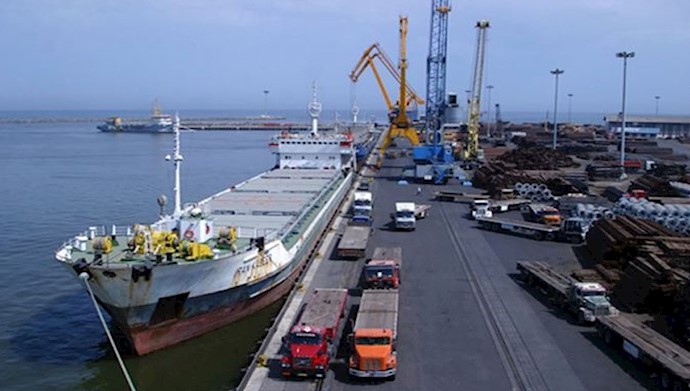Analysis by PMOI/MEK
Iran, June 10, 2019 – It’s always hard to pinpoint the exact reasons for this phenomenon, but historically, the quantity and quality of revelations about corruption by a ruling dictatorship begins to rise dramatically in tandem with the regime in Iran going through its stages of life towards the inevitable doom.
Mohsen Safaei Farahani is a former member of the mullahs’ Majlis (parliament) from the so-called reformist camp, a former president of the Iranian Football Federation, has always been an active participator and benefactor of the corrupt economy run by the ruling mullahs in Tehran.
In a recent interview with Eghtesad News, a state-run website that mainly covers economic news, he painted a mind-blowing picture of the staggering quantity of corruption in their “holy Islamic” state.
“We are now in a situation where ten trillion [rials] has become an ordinary number for [economic] corruption,” he said.
Calculated at the current exchange rates, which stands around 13 thousand Iranian rials per U.S. dollar, this would be about $77 million.
Following are excerpts from his interview.
Comparing Iran’s economy with some Asian countries, he says: “Among the 20 countries which were the largest exporters last years, eight were from Asia… Many of these countries are smaller than Iran. Why have they reached all this manufacturing and opportunity for export? Most of them do not have oil and gas. South Korea’s only mine is gypsum. Why don’t the decision-makers of Iran want to understand that their political decisions have paralyzed the country’s economy? South Korea’s Hyundai and Iran Khodro started their activities at the same time, [but] how much market share has Hyundai [now] in the world? [While] Iran Khodro is surviving with the help of banks and heavy debts!”
His remarks on the amount of smuggling are also quite interesting.
“The quantity of trafficked goods is worth 1.5 quadrillion rials [ around $11.5 billion], while the public budget of the country is about 3.5 quadrillion rials [around $28 billion], which is a little more than the value of the smuggled goods! Is this amount of illegal goods imported [on the shoulders] of porters or in shipping containers?”
Safaei Farahani quickly responds: “In shipping containers and easily, too!”
Porters are poor individuals who make a living by transporting goods on their shoulders over the Western Iranian border with Iraq and Turkey. The goods are moved over a mountainous area and under extreme difficulty and personal peril to circumvent customs. The porters themselves generally don’t even own the trafficked goods. Porters are regularly shot down by border guards or step on washed away land mines remaining in the fields from the 1980s Iran-Iraq War era.
Safaei Farahani’s reference to smuggling in shipping containers is a reference to organized crime set up by the highest levels of the ruling elite, including commanders of the Islamic Revolutionary Guards Corps (IRGC), known to own dedicated seaports to facilitate their “business ventures.”
“Once we talked about embezzlement of 300 trillion rials. So that the people understand the amount of three thousand billion tomans we need to say that if a person saves 100 million tomans every month, he needs 2,500 years to reach three thousand billion tomans. Now imagine what it means to smuggle 1.5 quadrillion rials every year. How much money is that?”
For reference, the minimum monthly wage for Iranian workers in the current Persian year is about 15 million rials a month.
“Unfortunately, the whole Iranian economy is dysfunctional and based on rents, providing skyrocketing riches to a special group. Therefore, over the past 15 years, while the management capacity in the country decreases and the oil income increases, records of corruption are broken with factors of a ten trillion rials! In developed countries or in developing countries, the president or a minister is sacked from power for corruptions of far fewer proportions… but we see that here, a ten trillion rials have become business as usual when it comes to corruption.”
“When such circumstances are created in the economy, on the sidelines of the oligarchy of power, gangs are created that have aligning interests and it is natural that in an unwritten manner, they coordinate with each other and do their best to prevent any form of legal positivism and order.”
Stopping short from explicitly saying that the Islamic Republic system of government does not work at all, the interviewee concludes his statements saying: “The situation of the country and the difficulties that the people are dealing with these days aren’t small ones. It means that from the economic, societal, cultural, environmental, and political perspective, there is an accumulation of inefficiencies that have a direct effect on the life and work of the citizens. If we want to find an exit from these difficulties, the country needs a foundational change of perspective. The officials of the country need to accept it after 40 years that many paths have been wrong. They need to seek foundational reforms. When we live in today’s world, we can’t continue [our] mistakes without paying attention to the reality of the world.”





